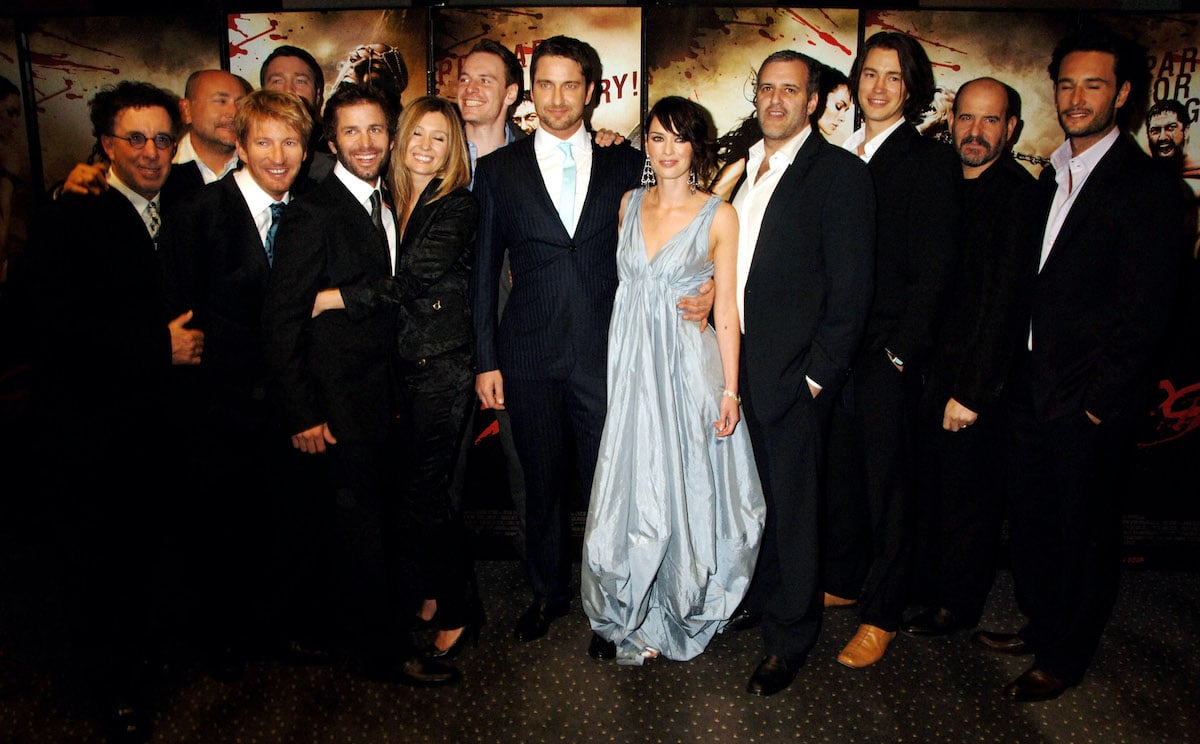
Why a Mythology Expert Thinks ‘300’ Has a ‘Racist’ Portrayal of Persian People: ‘It’s Kind of Promoting White Supremacy’
Greek mythology has provided fodder for several movies for a long time. From Spartacus to Clash of the Titans, there’s plenty to go around. While some movies truly capture the essence of Greek mythology, some provide a biased view meant to uplift other cultures. A mythology expert thinks 300 falls into the latter with its “racist” portrayal of Persian people. He said, “It’s kind of promoting white supremacy.”

Peter Meineck is a mythology expert with authority in the field
Peter Meineck is a Professor of Classics in The Modern World at New York University. He also founded Aquila Theatre and serves as the humanities program director. Meineck has held appointments at the University of South Carolina and Princeton University.
He is also an affiliated faculty member in NYU’s Tisch School of the Arts. Meineck’s specialty lies in Greek drama, performance, and literature performance of trauma in antiquity and cognitive theory applied to antiquity.
Meineck has produced and directed several stage productions, including Ajax, Wasps, Romeo and Juliet, Catch-22, Murder on the Nile, An Enemy of the People, Prometheus Bound, and The Invisible Man.
He translated and published various Greek dramas and adapted the libretto for Cherubini’s Médée. Meineck has also published books on Greek mythology. His works include The Trials of Socrates: Six Classic Texts, Oresteia, Clouds, Theatrocracy and Combat Trauma, and The Ancient Greeks.
Peter Meineck believes ‘300’ is problematic for several reasons
300 is a 2006 film that follows Spartan ruler King Leonidas, who leads his army of 300 men into battle against The Persian Xeroxes, also known as The God-King. Leonidas invades God King’s vast army of more than 300,000 soldiers. Meanwhile, his wife, Queen Gorgo, tries to rally others to support her husband.
300 was a box office success, earning $456.1 million against a $65 million budget. While the movie tries its best to portray Spartans in a great light, it lets down the Persians, according to Meineck. The mythology expert believes that the movie is good but has some problematic aspects, and it all boils down to its portrayal of the Persians. He said:
“One of the things I really don’t like about this movie is the way that the Persians are presented. They are almost non-human. Twisted and as kind of vile, and to me, it’s really quite racist, actually … It’s kind of promoting white supremacy vs. this horrible kind of invasion of brown people, and it’s completely inaccurate.”
Meineck also pointed out the incorrect portrayal of characters with disabilities, noting that although there are accounts of disabled characters, the movie did the “deformed” character an injustice. He said:
“He’s certainly nowhere near as deformed as this character. And again, that’s also kind of very problematic. There’s a connection between physical perfection in beauty and loyalty and truth. Because this character doesn’t fit that ideal, he has to be deceitful.”
Meineck pointed out that what the movie portrays is the opposite of what is found in Greek mythology. He noted that other similar disabled characters in Greek mythology had great high status in Greek society.
Greek mythology and its inclusivity
Meineck noted that Greek mythology had zero undertones of racism and xenophobia as portrayed subtly in the movie as Greek texts show that the Persian empire was multiethnic. Meineck recalled a play written by Aeschylus, who fought in battle and lost a brother.
According to Meineck, the play The Persians provides a glimpse into the Persians’ defeat in battle. He said:
“We actually feel sympathy for the Persians in their defeat, and we feel their pain, and we feel their losses that’s happened to them. And I think this is the thing that really makes me uncomfortable about this film.”


